St. Edward the Confessor, pray for us sinners!
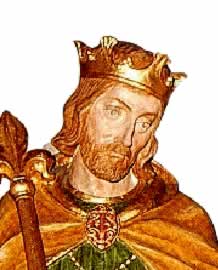
Today is the feast of one of England's greatest Orthdoox Saints, and the second-to-the-last Orthodox King of England, St. Edward the Confessor (+1066). Specifically, it is the feast of the translation of his holy relics. The date of his holy repose, January 5, but since the early 12th century, his principle feast day has been the his translation. As January 5 is also the Vigil of Epiphany, celebrating the feast today allows for more to be done, liturgically, to honor the Saint.
These days, October 13-15 are, in a way, high holy days for Orthodox England. On October 14, the memory of Blessed King Harold II, the last Orthodox King of England and those with him at Hastings are commemorated (+1066), who died defending their Orthodox homeland and people and Church from a Papal Crusade which sought to bring the English Church and people into subjection. Then, on October 15, we commemorate the last Orthodox English Bishop, Blessed Ethelric of Durham (+1072), who died in a Norman Roman Catholic prison, a martyr for Holy Orthodoxy.
To learn more about the fall of Orthodox England, click here to read a short book or long article written by Vladimir Moss. While some of Mr. Moss's conclusions about this and other Orthodox topics tend to the extreme and the topic he writes on has yet to be thoroughly researched by trained academics, the article itself is at least a starting point for such research and a source of information for Orthodox Christians with inquiring minds.
The link above also has a lot of good information on the Life of St. Edward and his miracles which God worked through him even while he lived on this earth.

The original Abbey would not have had Gothic architecture. Most likely, it was kin to other Anglo-Saxon ecclesiastical structures, few of which survive today, with Romanesque influences which would have come from the Normanization of England, which was taking place even before the invasion of 1066. St. Edward, having been raised in Normandy amongst his Norman relatives, brought with him many Norman ideas and counsellors to England.

O God, Who didst bestow upon thy Blessed King Edward the crown of everlasting glory : grant us, we pray Thee ; so to venerate him on earth, that we may be found worthy to reign with him in heaven. (+) Through our Lord Jesus Christ, Thy Son, our God, Who liveth and reigneth with Thee and the Holy Ghost, one God, world without end. Amen.
Edward, surnamed the Confessor, was the nephew of the holy King Edward the Martyr, and himself the second-to-last Anglo-Saxon King. That he should succeed to the Kingdom was shewn by the Lord in a trance to a most holy man named Brithwald. When he was ten years old the Danes, who were ravaging England, sought him, to put him to death, and he was driven into exile to dwell with his mother's brother, Richard II, Duke of Normandy, at whose Court he lived among all the allurements of vice a life of such uprightness and innocency as made all men to marvel. He was a burning and shining light for love of God and the things of God, very gentle-hearted, and quite free from any lust for power. Of him the saying is preserved, That he would rather not be a King if he had to win a kingdom through slaughter and blood.
When the Danish tyrants, who had robbed his brothers Edmund and Alfred of life and kingdom, were passed away, Edward was called back into his own country and with the hearty good-will and rejoicing of all, took the kingdom. He set himself to repair the breaches which wars had made, and began with the things of God. Of the Churches of the Saints, he built some altogether, and renewed others and gifted them with incomes and privileges, being chiefly fain that religion should rise from the low estate whereinto it had fallen. He was brought by the nobles of his Court to marry, but it is constantly said by all writers that in matrimony he remained a virgin with a virgin bride. So great was his love toward Christ, and so strong his faith, that somewhiles when the Mass was in saying, he won to see Christ, with countenance full of grace, and glory of God's light. By reason of the abundance of his charity he was styled everywhere the father of orphans and of the poor, and he was never happier than when he had spent upon the needy the whole of his kingly treasure.
He was famous for the gift of prophecy, and foretold by inspiration from heaven many things that were to befall England. Of this gift the following is a remarkable instance. Sweyn, King of the Danes, was embarking on ship-board with the mind to invade England, when he fell into the sea and was drowned, and God made known his death to Edward at the very same moment that it happened. He had a wonderful love toward John the Evangelist, so that he was used never to refuse anything for the which he was asked in his name. The Evangelist appeared to him one while in tattered raiment, and, in his own name, asked him for an alms. It befell that the King had no money, wherefore he took a ring from off his finger and gifted him therewith. Not long afterward, the Evangelist sent the same ring back to him by a pilgrim, with a message concerning his death, which was then at hand. The King therefore commanded that prayers should be made for him, and then fell blessedly asleep in the Lord, upon the very day which had been foretold to him by the Evangelist, that is to say, 5th day of January, in the year of salvation 1066. He was famous for miracles both during his life and after his repose. His memory soon came to be venerated throughout Christendom. On the 13th day of October, in the year 1102, his body was lifted from the earth and found uncorrupt and sweet-savoured.

I'm not certain if his holy relics are located here or not. The Destruction of the Monasteries (Westminster Abbey was a large monastery) and the Deformation under Henry VIII caused the destruction of St. Edward's tomb and shrine, while his holy relics were buried in an obscure place. I couldn't tell from the on-line histories if Queen Mary was able to find the holy relics and put them back where they belonged.

It's not the actual crown he wore. The gold in this crown, however, is believed to have come from St. Edward's own crown. It isn't improbable, given that St. Edward was venerated as much by the Norman invaders after his death as by the Anglo-Saxon English while he was alive.

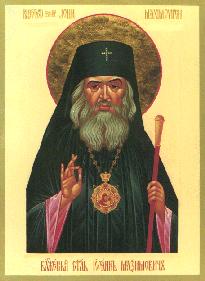
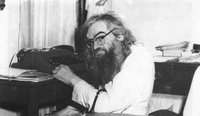
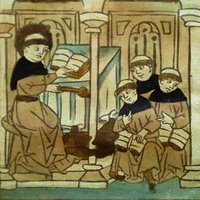
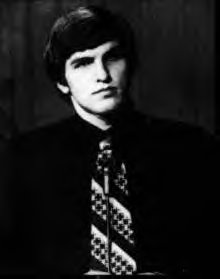



0 Comments:
Post a Comment
<< Home